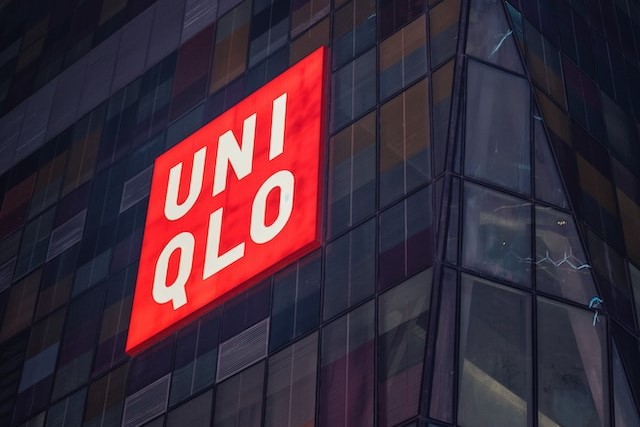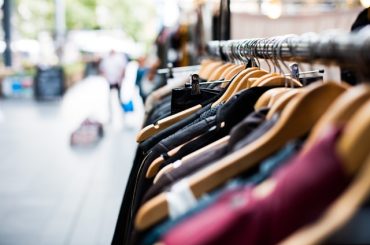Before we dive deep into the PESTEL analysis, let’s get the business overview of Uniqlo. Uniqlo is a well-established global brand in the fashion and retail industry. It was founded in 1949 in Yamaguchi, Japan, and was initially named “Unique Clothing Warehouse.” This name was later shortened to Uniqlo. The company is a subsidiary of Fast Retailing Co., Ltd., a leading Japanese retail holding company with various businesses worldwide.
As of my last training data in September 2021, Uniqlo operates over 1,400 stores across 25 countries. Uniqlo’s primary business is producing and retailing casual wear for men, women, and children. Their clothes are known for being high-quality, stylish, and reasonably priced, with a particular focus on basics and everyday wear. They leverage proprietary technology for fabrics like HEATTECH and AIRism, which have unique characteristics such as heat retention and quick drying.
The company follows a strategy called “SPA” (Specialty store retailer of Private-label Apparel), which means they handle the entire clothes production process from design and manufacture to retail. This approach allows them to maintain high quality, keep prices low, and react quickly to market trends.
How Uniqlo is Set to become the World’s top fashion retailer
Uniqlo’s global expansion has been aggressive and aims to become the world’s leading apparel retailer. Its international growth strategy primarily focuses on opening flagship stores in key city locations. Its largest markets outside Japan are China, South Korea, and the United States, with a rapidly expanding presence in Southeast Asia and Europe.
Its marketing campaigns often involve collaborations with various artists, designers, and cultural icons to create limited-edition collections. These collaborations have been instrumental in boosting the brand’s recognition and desirability.
Uniqlo’s business model, including its SPA strategy, emphasis on innovation, and strong brand presence, has made it a significant player in the global retail apparel market.
Financial Performance 2022:
UNIQLO Japan: FY2022 revenue down, profit up. Performance recovers in 2H with revenue rise and sharp profit gain.
- In FY2022, same-store sales declined 3.3%. First-half same-store sales declined 9.0%, but second-half same-store sales rose 4.7% on strong sales of Kando jackets and pants, shirts, and other products that satisfied renewed going-out needs and strong sales of Summer ranges.
- The gross profit margin improved by 2.5 points on controlled discount sales. The selling, general and administrative expense ratios increased by 1.5 points.
UNIQLO International: Large full-year revenue and profit gains. Large profit improvement in Europe and the United States
- Significant rises in FY2022 revenue and profit. Revenue: 1.1187 trillion yen (+20.3%), operating profit: 158.3 billion yen (+42.4%). Revenue increased, and profits rose sharply even in local currency terms.
Here is the PESTEL analysis of Uniqlo
A PESTEL analysis is a strategic management framework used to examine the external macro-environmental factors that can impact an organization or industry. The acronym PESTEL stands for:
- Political factors: Relate to government policies, regulations, political stability, and other political forces that may impact the business environment.
- Economic factors: Deal with economic conditions and trends affecting an organization’s operations, profitability, and growth.
- Sociocultural factors: Relate to social and cultural aspects that may influence consumer preferences, lifestyles, demographics, and market trends.
- Technological factors: Deal with developing and applying new technologies, innovations, and trends that can impact an industry or organization.
- Environmental factors: Relate to ecological and environmental concerns that may affect an organization’s operations and decision-making.
- Legal factors: Refer to the laws and regulations that govern businesses and industries.
In this article, we will do a PESTEL Analysis of Uniqlo.
PESTEL Analysis Framework: Explained with Examples
Political
- Trade Policies: Uniqlo is a global brand, part of Fast Retailing Co., Ltd., and operates in multiple countries. The political relationships between Japan (where it’s headquartered) and the countries it operates can impact its business. For instance, changes in trade policies, tariffs, or import/export regulations can directly affect Uniqlo’s supply chain, costs, and prices.
- Political Stability: The political stability of the countries where Uniqlo operates directly impacts the brand. Unstable political environments can lead to disruptions in the supply chain, create barriers to market access, and even pose a risk to the stores and employees in those areas.
- Labor Laws: As a retailer, Uniqlo employs a large number of staff in its stores worldwide. The political environment in the countries where it operates can influence labor laws, such as minimum wages, working conditions, or worker rights, potentially impacting Uniqlo’s operating costs and HR policies.
- Government Regulations: Uniqlo must adhere to various government regulations in every country it operates. These might include business operation regulations, tax policies, and data security laws.
- Intellectual Property Protection: The enforcement and regulation of intellectual property rights varies greatly from one country to another. Uniqlo’s ability to protect its designs and branding from counterfeiting or copying is affected by the political commitment to IP protection in different jurisdictions.
- Sustainability and ethical standards: Governments worldwide increasingly focus on ethical business practices and sustainability. Regulations related to these factors, such as environmental standards and fair trade policies, impact Uniqlo’s business operations.
Economic
- Economic Growth: The level of economic growth in the countries where Uniqlo operates could influence the purchasing power of consumers. In economies experiencing strong growth, consumers may have more disposable income to spend on clothing, benefiting Uniqlo. Conversely, during periods of economic recession, consumers may cut back on spending, affecting Uniqlo’s sales.
- Exchange Rates: Uniqlo operates in multiple currencies as a global company. Fluctuations in exchange rates can significantly impact revenue, costs, and profits. For instance, if the yen strengthens against other currencies, the cost of goods sold outside Japan may increase, affecting Uniqlo’s profitability.
- Inflation Rates: Inflation can impact the costs of raw materials and labor, potentially leading to increased prices for Uniqlo’s products. If these increases aren’t passed on to consumers, it could affect Uniqlo’s profit margins.
- Unemployment Rates: High unemployment rates can decrease consumer purchasing power and demand for Uniqlo’s products. On the other hand, high unemployment could potentially provide a larger pool of potential employees, potentially reducing labor costs.
- Interest Rates: Interest rates can affect Uniqlo’s costs, primarily if it relies on borrowed funds for operations or expansion. Higher interest rates can increase the cost of borrowing and reduce profitability.
- Consumer Confidence: Consumer confidence is a key economic indicator that can directly affect retail sales. When consumer confidence is high, consumers are more likely to spend, which could boost sales for Uniqlo. When consumer confidence is low, consumers are likely to reduce spending, potentially reducing sales.
Sociocultural
- Consumer Attitudes and Behaviors: Uniqlo’s success can be significantly influenced by the attitudes and behaviors of its consumers. The brand will likely perform well if consumers in a particular region favor fashionable, affordable, and quality clothing (a trademark of Uniqlo’s offering). However, changing fashion trends or consumer preferences can have a negative impact.
- Demographics: Changes in the population’s age, gender, income level, and other demographic factors can influence demand for Uniqlo’s products. For example, an aging population may demand different types of clothing compared to a younger demographic.
- Ethical and Social Responsibility: Consumers are more conscious of ethical considerations and social responsibility in their chosen brands. Issues like fair trade, sustainable sourcing, working conditions, and the environmental impact of products can influence consumer buying decisions. Uniqlo must ensure it meets these expectations to maintain a positive brand image.
- Cultural Differences: Uniqlo operates in multiple countries, and cultural differences can influence what clothing items are popular. What sells well in Japan may not necessarily sell well in the U.S., Europe, or other parts of Asia. Understanding these differences is crucial for Uniqlo’s product development and marketing strategies.
- Health and Well-being Trends: With increasing global awareness of health and well-being, a significant shift has been made toward products catering to this lifestyle. For instance, the rise of activewear and the athleisure trend is directly tied to this social shift.
- Lifestyle Changes: Changing lifestyle trends, like the increase in remote working due to the COVID-19 pandemic, may change the types of clothing people buy. Uniqlo needs to adapt to these shifts to meet changing customer needs.
Technological
- E-commerce and Online Shopping: The rise of e-commerce has significantly impacted the retail industry. Uniqlo has an opportunity to grow its online sales, which can help the company reach more customers and increase its market share. However, it also faces competition from other online retailers and must ensure it offers a seamless and user-friendly online shopping experience.
- Supply Chain Management Technology: Technologies related to logistics, inventory management, and supply chain operations can help Uniqlo operate more efficiently and cost-effectively. Advanced forecasting and demand planning tools can help the company manage its inventory better and reduce costs.
- Technology in Manufacturing: New technologies can also impact the production of Uniqlo’s products. Innovations in fabric technology or production processes can lead to better quality products, more sustainable production methods, or cost savings.
- Mobile Technology: The rise of mobile technology has changed consumer behavior. Mobile apps and mobile-friendly websites are crucial for reaching customers who prefer shopping on their smartphones or tablets. Uniqlo would need to invest in mobile technology to meet these customer expectations.
- Artificial Intelligence (AI) and Data Analytics: AI and data analytics can provide valuable insights into customer behavior, market trends, and operational efficiency. This can help Uniqlo make better business decisions, from predicting fashion trends to personalizing the shopping experience for individual customers.
- Social Media and Digital Marketing: Technology also plays a critical role in marketing and customer engagement. Uniqlo needs to have a strong presence on social media and utilize digital marketing strategies to engage with customers and promote its products.
- Augmented Reality (AR) and Virtual Reality (VR): These technologies are starting to play a bigger role in the retail industry, providing virtual fitting rooms or virtual store experiences. Adopting these technologies could provide Uniqlo with a competitive advantage.
Environmental
- Climate Change: Climate change affects the fashion industry in various ways. Changing weather patterns can influence consumer buying behavior and clothing preferences. It could also disrupt Uniqlo’s supply chains, especially if natural disasters become more frequent.
- Sustainability: There is a growing trend among consumers to support businesses that practice sustainable manufacturing. Like other retailers, Uniqlo is under pressure to make its operations more sustainable, reducing waste, promoting recycling, and using environmentally friendly materials in its products.
- Carbon Footprint: Governments worldwide are implementing stricter carbon emission regulations to mitigate climate change. Uniqlo might need to invest in cleaner, renewable energy sources and efficient practices to reduce its carbon footprint and comply with these regulations.
- Supply Chain: Uniqlo’s supply chain involves various environmental aspects, from sourcing raw materials to manufacturing, transportation, and disposal of products. Environmental issues like water pollution, deforestation, and habitat destruction linked to these activities could impact Uniqlo’s reputation and operations.
- Animal Welfare: If Uniqlo uses animal-based materials in its products, it needs to ensure ethical treatment of animals to avoid backlash from consumers and animal rights organizations.
- Waste Management: Retail businesses typically produce significant waste, from unsold inventory to packaging. Effective waste management strategies are crucial for compliance with regulations and improving Uniqlo’s sustainability and brand image.
Legal
- Employment Laws: Uniqlo operates in various countries, each with different employment laws regarding minimum wage, working hours, and employee benefits. Uniqlo must comply with these laws to avoid legal issues and maintain a positive brand image.
- Trade Regulations: International trade regulations, including tariffs, quotas, and customs, affect Uniqlo’s operations as it sources materials and sells products globally. Changes in these laws can impact the cost of goods, supply chain, and pricing.
- Health and Safety Regulations: Uniqlo must comply with health and safety regulations in all of its retail locations to ensure the well-being of its employees and customers.
- Consumer Laws: These laws protect consumers from fraudulent practices. Uniqlo must ensure its marketing and sales practices comply with consumer protection laws in each country.
- Intellectual Property Laws: like other fashion retailers, Uniqlo must protect its designs and branding. The enforcement of intellectual property laws varies in different countries, which can impact Uniqlo’s ability to preserve its unique designs and brand image.
- Environmental Laws: There are legal requirements related to environmental practices, such as waste disposal, pollution, and use of natural resources. Uniqlo needs to adhere to these regulations in its manufacturing and retail practices.
- Data Protection Laws: As Uniqlo collects and uses customer data, it must comply with data protection and privacy laws, which vary by country. Non-compliance can lead to severe penalties and harm the company’s reputation.











